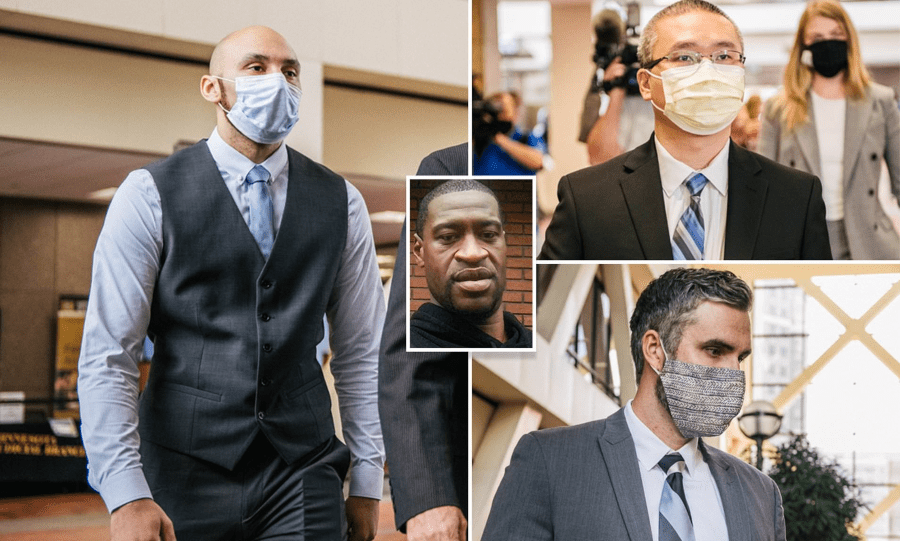U.S. News
Judge lifts gag order for 4 ex-Minneapolis cops charged in George Floyd’s death

WHAT YOU NEED TO KNOW:
- Minnesota Judge Peter Cahill of the Hennepin County District has lifted a gag order in the criminal cases involving the four ex-Minneapolis cops over George Floyd’s brutal death.
- Cahill also said that he would not hold lead prosecutor Attorney General Keith Ellison in contempt for announcing that there would be additional prosecutors that will help in the case.
- The judge added that he would review the news media coalition’s request to have the police body camera footage more available to the public.
On Tuesday, Hennepin County District Judge Peter Cahill lifted a gag order in the criminal cases involving the four former Minneapolis cops ━ Derek Chauvin, Tou Thao, Thomas Lane, and J. Kueng ━ who were charged over George Floyd’s death last May 25.
All defense lawyers of the four former officers had requested Cahill to lift the gag order. The Associated Press was among news organizations that opposed the order.
The Minnesota judge noted, though, that he expects all lawyers in the case to adhere to the rules about divulgence of information. Cahill concurred with the arguments of the four ex-cops’ defense lawyers who said that a gag order would be unjust, and would restrain defending themselves against the public.
Cahill ruled on Tuesday that he would not hold lead prosecutor Attorney General Keith Ellison in contempt, contrary to the request of the two defense lawyers. He said that Ellison did not violate the gag order when he declared that there would be additional prosecutors to join the case.
Cahill also said on Tuesday that he would look into the news media coalition’s request to make body camera footage more accessible to the public. The order allows videos of the incident to be made available for in-person, by-appointment viewing only.
However, Media lawyer Leita Walker contested the format since it violates the common law, rules of public access to records, and the First Amendment. Ultimately, it was like withholding the videos from public, Walker said.
Having limited exceptions, records of all courts are presumably open for public scrutiny ━ but a court may implement restrictions if such access may affect the just and objective administration of justice, and other alternatives won’t suffice, according to prosecutors.
It was earlier this month when Cahill was prompted to issue an order prohibiting all parties from discussing the case publicly when Earl Gray, Lane’s attorney, proposed to share videos with the public. The videos were filed in the court by Gray to have Lane’s case dismissed.
Floyd, a 46-year-old black man who died on May 25 in a brutal arrest after Chauvin kneeled on his neck for almost nine minutes. Chauvin was charged with second-degree murder, third-degree murder, and manslaughter. Meanwhile, Thao, Lane, and Kueng, were charged with aiding and abetting both second-degree murder and manslaughter.
Source: NBC News
